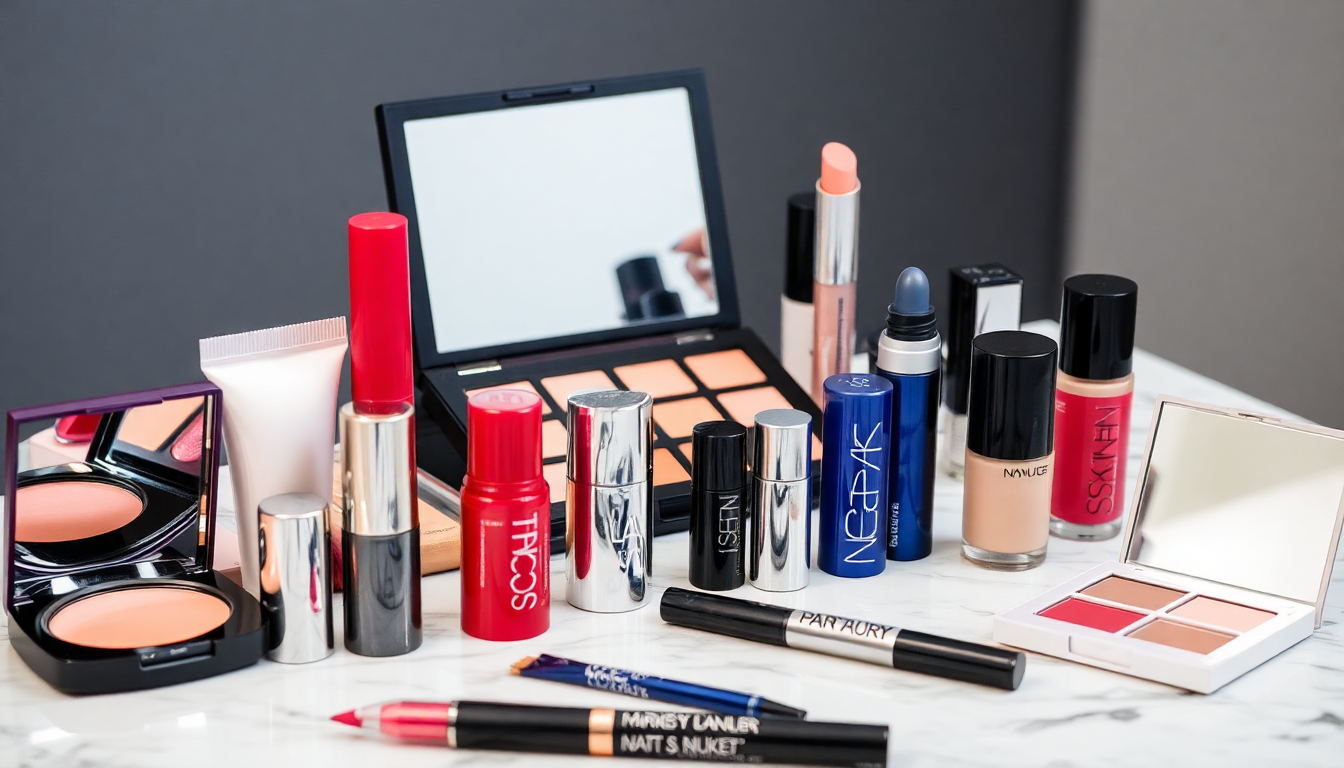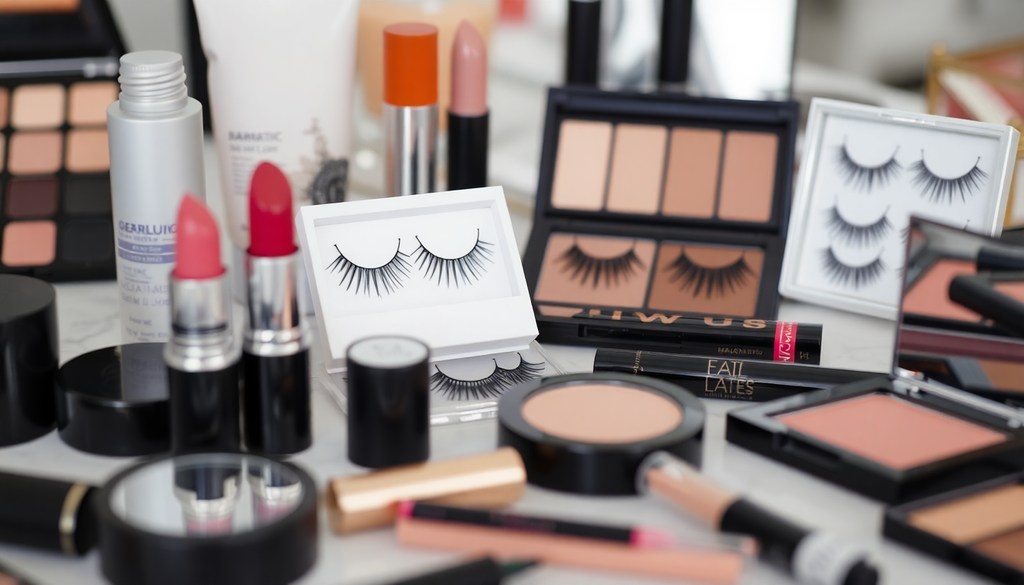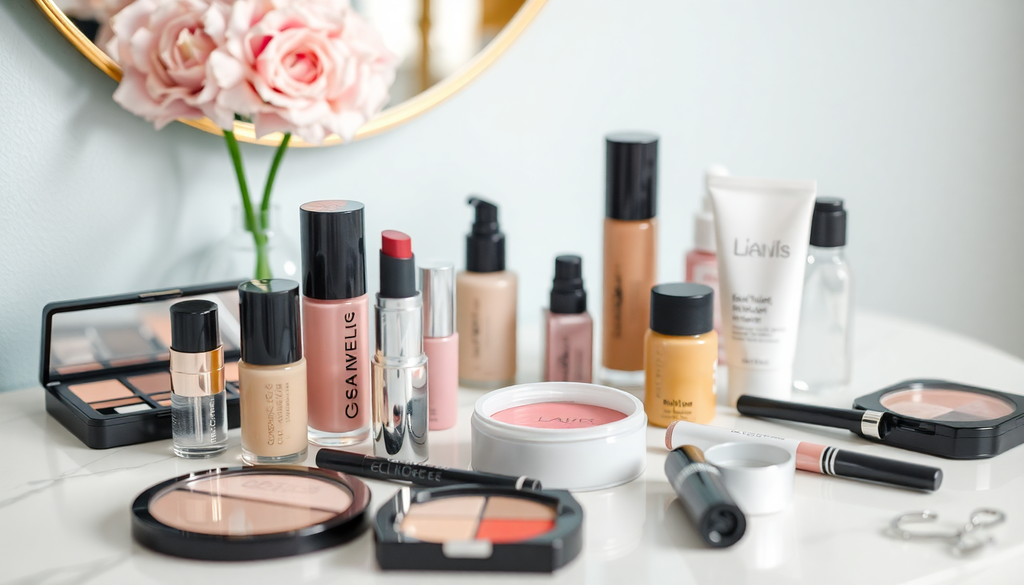
Starting Your Makeup Business: Essential Steps for Navigating Private Label Cosmetics and Import Policies
Introduction
Starting a makeup business can be a thrilling venture, especially with the rise of private label cosmetics. The beauty industry has seen explosive growth, and with the right strategy, your brand can thrive. However, navigating the complexities of import policies and regulations can be daunting. In this comprehensive guide, we'll explore the essential steps to help you successfully launch your makeup brand while ensuring compliance with various cosmetic labeling requirements and import regulations.
Understanding Private Label Cosmetics
Private labeling allows you to sell products manufactured by another company under your brand name. This approach offers several advantages:
- Lower Startup Costs: With private labeling, you don’t need to invest in manufacturing equipment or facilities, which significantly reduces your initial investment.
- Access to Ready-Made Formulations: You can choose from a variety of existing formulations, allowing you to enter the market quickly.
- Ability to Focus on Branding and Marketing: By outsourcing production, you can dedicate your resources to building your brand identity and marketing strategies.
Essential Steps to Start Your Makeup Business
1. Research Your Market
Before diving into product development, conduct thorough market research to understand the landscape:
- Identify Your Target Audience: Define who your ideal customers are based on demographics, preferences, and purchasing behavior.
- Analyze Competitors: Study what successful brands are doing, their product offerings, pricing strategies, and marketing approaches.
- Determine Current Beauty Trends: Stay updated with the latest trends in the beauty industry, including popular product types and consumer preferences.
2. Choose a Niche
Focus on a specific niche within the makeup industry, as this can help differentiate your brand:
- Luxury Cosmetics: Products that emphasize high-quality ingredients and premium packaging.
- Eco-Friendly Makeup: Brands that focus on sustainable practices and natural ingredients.
- Vegan or Cruelty-Free Options: Makeup products that do not contain animal-derived ingredients and are not tested on animals.
3. Develop Your Brand
Create a compelling brand identity that resonates with your target audience:
- Design a Memorable Logo: Your logo should reflect your brand's identity and be easily recognizable.
- Select a Unique Brand Name: Choose a name that is catchy, easy to remember, and relevant to your niche.
- Establish a Cohesive Brand Voice: Your brand's messaging should be consistent across all platforms, whether on social media, your website, or packaging.
4. Source Your Products
Find reputable manufacturers who offer private label services. Consider the following:
- Quality of Ingredients: Ensure that the manufacturer uses high-quality, safe ingredients in their formulations.
- Production Capabilities: Evaluate whether the manufacturer can scale production to meet your demands as your business grows.
- Compliance with Regulations: Confirm that the manufacturer adheres to all relevant cosmetic regulations in your target market.
Navigating Import Policies
1. Understand Import Regulations
Each country has its own import policies for cosmetics. Familiarize yourself with:
- Tariffs and Taxes: Research the applicable tariffs and taxes imposed on imported cosmetics to estimate your costs accurately.
- Customs Documentation Requirements: Prepare all necessary documents, such as invoices and certificates of origin, to facilitate smooth customs clearance.
- Prohibited Ingredients: Be aware of any ingredients that are banned or restricted in your target market to avoid legal issues.
2. Obtain Necessary Certifications
Depending on your target market, you may need specific certifications to ensure compliance:
- Good Manufacturing Practices (GMP): Certification to ensure products are consistently produced and controlled according to quality standards.
- Cosmetic Safety Assessment: A thorough evaluation conducted by a qualified professional to ensure that your products are safe for consumer use.
- EU Cosmetic Regulation Compliance: If planning to sell in Europe, ensure compliance with the EU regulations concerning cosmetic products.
Cosmetics Labeling Information
1. Importance of Proper Labeling
Proper labeling is crucial for compliance and consumer trust. It also helps in marketing your products effectively:
- Ingredient Listings: Clearly list all ingredients in descending order based on their concentration.
- Expiration Dates: Indicate the shelf life of the product to ensure customer safety and satisfaction.
- Allergy Warnings: Provide clear warnings for allergens to protect consumers with sensitivities.
2. Labeling Requirements by Country
Labeling requirements can vary significantly depending on the country you are selling in:
- United States: Must comply with FDA regulations, including ingredient labeling and product claims.
- European Union: Must meet EU regulations that require specific formatting and ingredient disclosure.
- Australia: Cosmetic labeling must comply with the National Industrial Chemicals Notification and Assessment Scheme (NICNAS).
Setting Up Your Online Store
1. Choose an E-Commerce Platform
In the digital age, having an online presence is essential. Here’s how to set up your online store:
- Select an E-Commerce Platform: Choose from platforms like Shopify, WooCommerce, or BigCommerce that suit your business needs.
- Design an Attractive and User-Friendly Website: Ensure your website is visually appealing, easy to navigate, and mobile-friendly.
- Implement Secure Payment Methods: Offer various payment options and ensure customer data security with SSL certificates.
2. Optimize for SEO
To attract traffic to your online store, optimize your website for search engines:
- Keyword Research: Identify relevant keywords related to your products and incorporate them into your website content.
- High-Quality Content: Create informative product descriptions and blog posts to engage visitors and improve SEO.
- Image Optimization: Use high-quality images and optimize them with alt text to enhance visibility in search results.
Marketing Your Makeup Brand
1. Build a Strong Social Media Presence
Effective marketing strategies can elevate your brand's visibility:
- Leverage Social Media Platforms: Use Instagram, TikTok, and Facebook to showcase your products and engage with customers.
- Collaborate with Beauty Influencers: Partner with influencers who align with your brand values to reach a broader audience.
- Utilize Email Marketing Campaigns: Build an email list to share promotions, new product launches, and educational content with your audience.
2. Invest in Paid Advertising
Consider using paid advertising to boost visibility:
- Social Media Ads: Utilize targeted ads on platforms like Instagram and Facebook to reach potential customers.
- Google Ads: Use Google Ads to appear in search results when users look for makeup products.
3. Engage with Your Community
Building a loyal customer base is crucial for long-term success:
- Host Events or Webinars: Organize makeup tutorials or Q&A sessions to interact directly with your audience.
- Encourage Customer Reviews: Request feedback from customers and showcase positive reviews to build trust.
Conclusion
Starting your makeup business is an exciting journey filled with opportunities. By understanding private label cosmetics, navigating import policies, and implementing effective marketing strategies, you can establish a thriving brand in the competitive beauty industry. Remember to stay updated on regulations and trends to ensure long-term success. With dedication and the right approach, your makeup brand can flourish and make a significant impact in the market.


